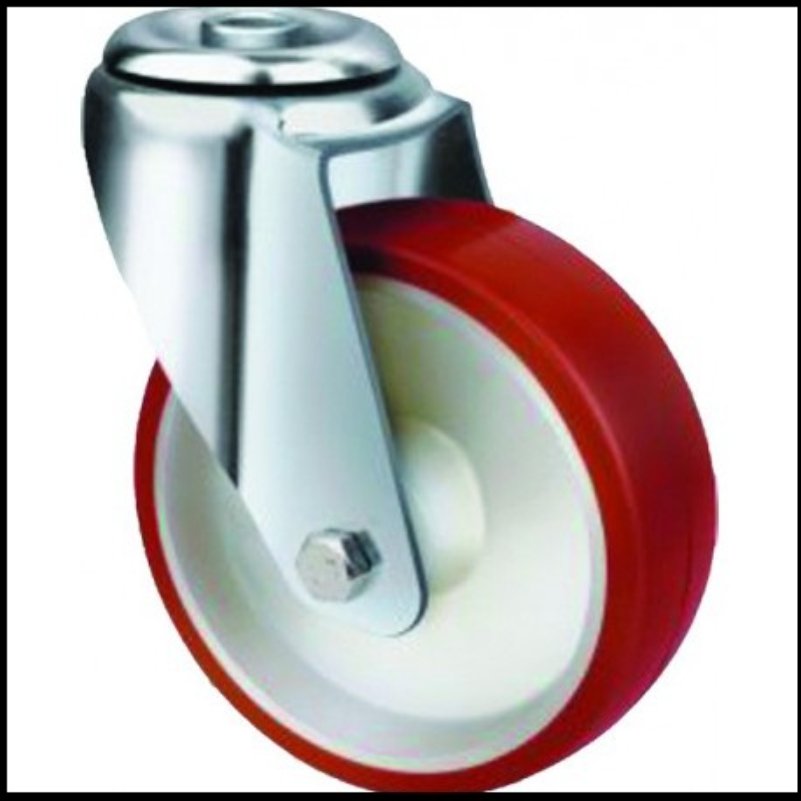Material Matters
One of the primary factors influencing the longevity of heavy duty castors in Adelaide is the material from which they are constructed. High-quality materials not only contribute to the overall strength of the castors but also determine their resistance to wear and tear. Common materials used in the construction of heavy duty castors include:
Forged Steel: Castors made from forged steel are known for their exceptional strength. They can withstand heavy loads and harsh environmental conditions. The forging process enhances the structural integrity of the steel, making it an ideal choice for industrial applications where durability is non-negotiable.
Polyurethane Wheels: The wheels of heavy duty castors are often made from polyurethane, a versatile material that combines the durability of plastic with the elasticity of rubber. Polyurethane wheels are resistant to abrasion, chemicals, and oil, making them well-suited for industrial environments.
Precision Bearings: The choice of bearings is crucial for the smooth operation of heavy duty castors. Precision bearings reduce friction, enhance load-bearing capacity, and contribute to the overall longevity of the castors. Sealed ball bearings are commonly used to protect against dirt and contaminants.
Load Capacity and Safety
Durability is closely tied to load capacity – the ability of the castors to bear the weight of the equipment they support. When selecting heavy duty industrial castors, it is essential to consider the maximum load they will encounter in the intended application. Opting for castors with a higher load capacity than required adds an extra layer of safety and ensures longevity under challenging conditions.
Additionally, safety features such as brakes and locks contribute to the overall durability of heavy duty castors. Brakes prevent unintended movements and provide stability during stationary periods, reducing wear on the castors. Locking mechanisms secure the equipment in place, preventing unnecessary stress on the castors and extending their lifespan.
Environmental Considerations
Industrial environments can be harsh, with challenges ranging from extreme temperatures to exposure to corrosive substances. Heavy duty castors in Melbourne designed to withstand these conditions are essential for ensuring longevity. Look for features such as:
- Corrosion Resistance: Castors with corrosion-resistant coatings or materials are crucial in environments where exposure to moisture, chemicals, or salt is a concern. Stainless steel castors, for example, excel in resisting corrosion.
- Temperature Tolerance: In environments with extreme temperatures, castors that can operate seamlessly in both high and low temperature ranges are vital. This prevents material degradation and ensures consistent performance.
Maintenance and Lubrication
Regular maintenance is key to maximizing the lifespan of heavy duty industrial castors. A well-established lubrication schedule helps reduce friction, wear, and the accumulation of debris in the bearings. It is advisable to use lubricants recommended by the castor manufacturer to ensure compatibility with the materials used in construction.
Routine inspections should be conducted to identify any signs of wear, damage, or misalignment. Prompt replacement of damaged components and addressing any issues detected during inspections can prevent further damage and extend the overall lifespan of the castors.
Choosing the Right Castor for the Application
The specific requirements of an industrial application play a crucial role in determining the most suitable heavy duty castors. Factors such as floor conditions, travel distance, and frequency of movement must be taken into account. Choosing castors designed for the specific challenges of the application ensures optimal performance and longevity.
Thus, heavy duty industrial castors that withstand the test of time are the result of careful consideration of materials, load capacity, safety features, environmental factors, and maintenance practices. By investing in high-quality castors and incorporating a proactive approach to maintenance, industrial operations can ensure the smooth and reliable mobility of their equipment, contributing to increased efficiency and overall productivity.

